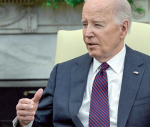You are here
Political transformative action must take note of the details
Aug 04,2018 - Last updated at Aug 04,2018
There persists a claim that Jordan has largely “escaped” the impact of the Arab Spring, yet it is becoming obvious that although we may not have witnessed a “physical” impact as such, Jordan is nevertheless in the midst of a transformational phase that is no less historically significant than the more apparent changes that took place in other Arab countries.
While I am not seeking to prove that Jordan is undergoing an Arab-Spring-type transformation in this space today, it may be sufficient to point to the rising voices of political activists and their supporters, as well as the clear mandate they are receiving from all economic classes as manifested in the last demonstrations that brought down prime minister Hani Mulki’s government. The fact that the calls for reform have and appear set to continue, to cross “red lines” calling for transparency at all levels of governance, belies the general political mood and chatter in the country, and highlights the need to rebuild trust and communication channels as soon as possible.
This is important to note, recognise and accept. Being cognizant of the depth and breadth of the risk and opportunity within this transformative phase will equip us to better deal with the apparent chaos in popular perceptions and reactions that is quickly delineating and dichotomising the country along class, religious, origin and income lines, therefore increasing popular frustration and impacting the country’s stability.
Understanding where we are politically should also clarify to our decision makers that they need to immediately foster a uniting narrative and plan of action to build trust as well as address the disconnect, and even sometimes schism, that had occurred between the Jordanian policymakers and people.
The plan should utilise the opportunity of the people’s heightened political engagement to seek their support for new models of governance that remain true to the Hashemite monarchy and the country’s foreign policy of political moderation as key ingredients of stability, but also build upon values of transparency, equality, equity, accepting responsibility, fair opportunity and justice for all citizens.
That can only happen by immediately building the credibility of all institutions managed by the government and carefully selecting or reassessing the merits of the managers of these institutions to send the message that Jordanians now desperately want to receive: Selection is based on meritocracy, management skills, corruption-free professional record, ethical relationship building and commitment to excellence in providing services and meeting the peoples’ expectations.
Populism, it is argued, can escalate or become a credible option when the institutions that should manage or mediate the relationship between the governed and the ruler are no longer credible, trustworthy or believable. When that ingredient goes missing, the people begin to believe that they can conduct the relationship directly with the ruler, bypassing the mediating institutions or even rule themselves. There is a concern that this argument is making a foothold in the country and may, if not dealt with quickly, build momentum that cannot be contained.
Within this framework, it is important to pay attention to the fact that managers of our public institutions, in their majority, arrived at their posts through nepotism, tribalism, regionalism, bartering of favours and even in some cases outright corruption.
This past couple of weeks we had the starkest case of what I am describing. The University of Jordan president selection was such a disgraceful process that the Ministry of Higher Education had to publicly announce that it was unsure of the selection criteria and wanted to receive a justification from the university’s board of trustees supporting their choices for president.
Academics have described what happened as a farce process which was manipulated to give advantage to candidates who have been publicly labelled as inept and unqualified with proven history of failing as managers in other institutions. The claim is that the process was lacking in transparency, was purposely designed to discount the most qualified candidates and was clearly being driven to achieve a pre-determined result regardless of suitability and ability.
Now the government faces a conundrum: Does it own up to the mismanagement of such a high-profile appointment and review or even restart the selection? If it does, it risks causing further damage to the reputation of the board of trustees, which facilitated the selection. As would be expected, there are conciliatory voices urging the government to sweep the whole affair under the carpet and make do with the best of the worst to avoid a public scandal.
The answer lies in my opinion in how serious is the government about appointing the best managers to mediate the relationship between the people and government so that Jordanians would trust these mediators and therefore organise themselves in a process of accountability and good governance, and ultimately fall under the authority of the government willingly and with faith.
It can be argued that forcing the board of trustees to take responsibility for their apparent gross mismanagement of one of their key duties, would add to the credibility of the premier and government and send a powerful message to the people of Jordan that the government is not afraid of scandal if it is to amend an injustice and that it intends to move forward with making all appointed officials accountable for their performance. I think the premier sent a positive message in that regard when he reviewed the situation with Al Basheer Hospital and transferred its manager. This might be another opportunity to continue that path.
I also believe it would send a powerful message to the tens of thousands of young women and men who attend the University of Jordan, and in fact other universities, at a time when we are trying to build the confidence of youth in the country’s institutions. Under the current scenario, the message they have been receiving is that their work does not matter, their achievements do not matter, their ethics and values do not matter because ultimately higher positions are available only to those who can “fix” the situation to their advantage.
It may seem insignificant in the scheme of loftier political and security priorities, but there is no doubt that the people of Jordan look at these type of cases as indicators of intent by the government and utilise these stories to judge not only its credibility, but its closeness and understanding of their priorities and value as citizens.
At this critical point in our political history, the devil is in the detail.













